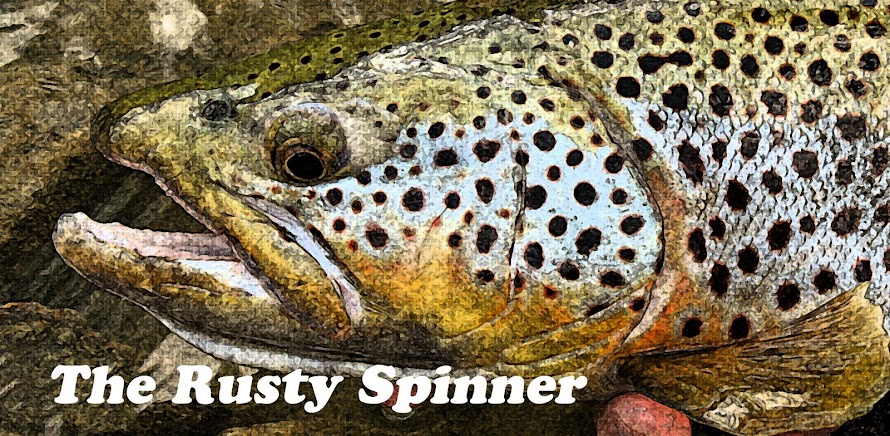
The narrator of Chuck Palahniuk's novel Fight Club, and his alter-ego Tyler Durden, would make fine fishermen. Why? They've the good sense to keep their collective, dissociatively disordered mouths shut. Silence is the first rule of Fight Club. Silence is the second rule of Fight Club. "You don't talk about Fight Club" (For the sake of further emphasis the contraction is omitted in the screen play ... "The first rule of Fight Club is you do not talk about Fight Club"). Similarly, silence is the proverbial golden rule of fishing.
You don't talk about the river. Just in case that isn't clear, I'll say it again. You do not talk about the river.
When you talk about the river you lose your right to complain about ever increasing crowds of people fishing your favorite runs. You lose the privilege of receiving fishing reports from those folks who exercise a little more verbal control. You lose the security that comes with knowing, absolutely knowing that there is a quiet place where you'll someday teach your son or daughter to read the water. When you talk about the river you lose your key to the inner sanctum.
Pete (last name omitted to protect the guilty from lynching) once talked about the river. As a matter of fact he went so far as to play guide, and one of his sports caught an enormous brown, which topped five or six pounds. For that brief moment Pete was a hero, and in the six years since that moment, positively no one has mentioned the river in conversation with him. Pete has been ostracized. He is, in the words of Robert DeNiro, outside the circle of trust.
Pete's case illustrates an important point. It is the deep-seated, almost primal desire to be a hero that motivates talkers. Talkers need recognition. They need for someone to acknowledge that they're competent and that they've done a job well. In an effort to gain such satisfaction, a talker will spill his or her guts to anyone willing to acknowledge the talker's prowess. Talkers unload their bowels where they sleep, and are later surprised at the smell.
Understand too that talkers often do more than just talk. Sometimes they play at being a guide. Sometimes they write magazine articles or books. Sometimes they just hang stuffed fish on the wall, and eagerly anticipate the inevitable, "Where d'ya get that one?"
Sometimes they blog.







